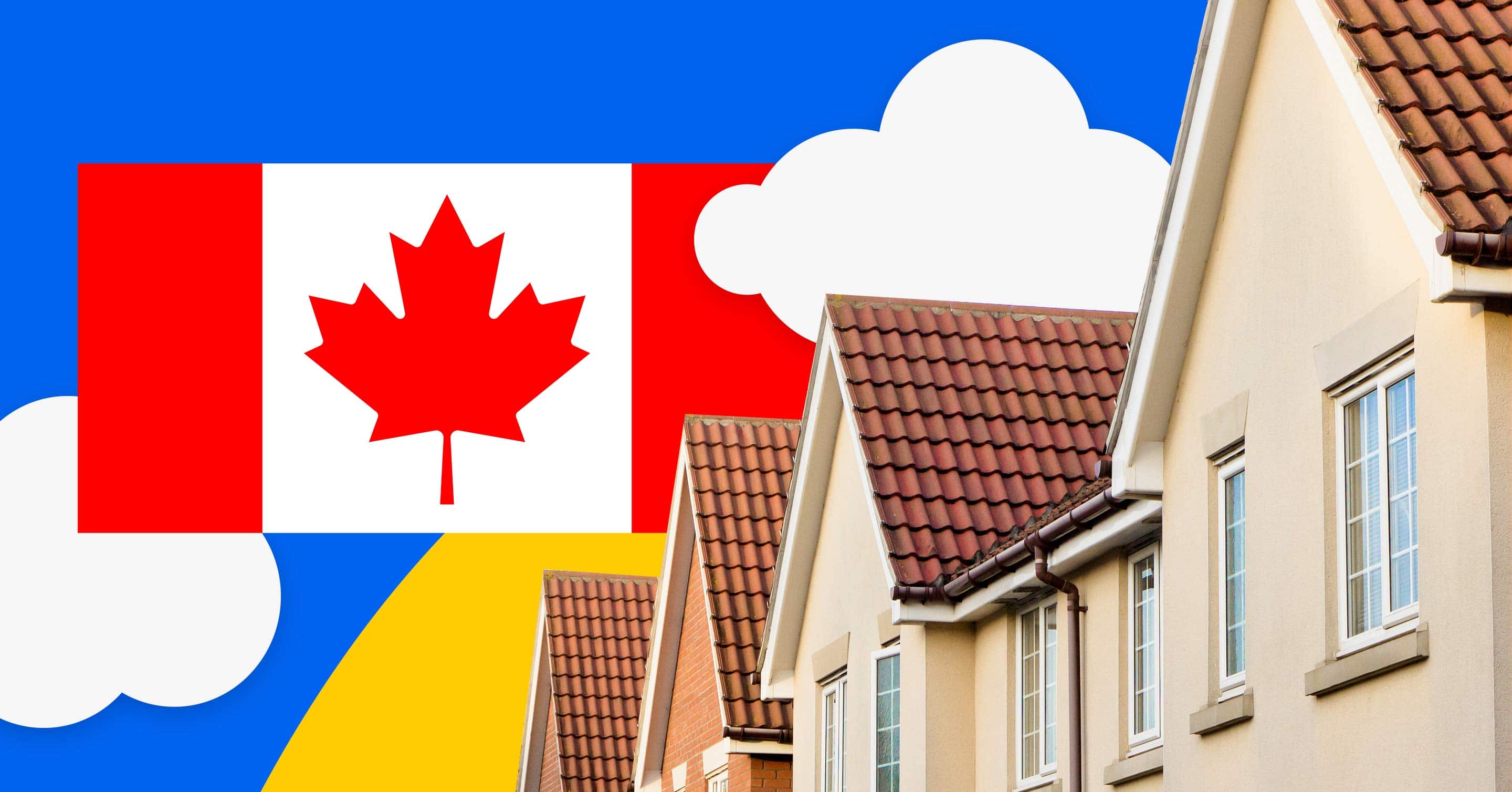Mortgage News | The State of Housing for Millennials

Table of contents
In recent years, Canada has seen a notable dip in homeownership rates. According to Statistics Canada, the percentage of homeowners dropped from a substantial 69% in 2011 to a lesser 66.5% in 2021. This trend, however, manifests differently across the country’s diverse provinces and generations, particularly among millennials. This article will delve into the state of housing for millennials in Canada, analyzing the homeownership rates, affordability, and the hurdles they face in the market.
Key Highlights
- Homeownership rates have declined all across Canada, with some provinces hit harder than others.
- In the 25-29 age group, homeownership rate plummeted from 44.1% to 36.5%, indicating a severe struggle to enter the market.
- A few factors that could potentially help millennials in 2024 include rate cuts and a decrease in home prices.
Home Ownership Rates Across Provinces
Homeownership rates have declined all across Canada, with some provinces hit harder than others, as indicated by 2021 data from Statistics Canada. For reference, the national homeownership rate decreased from 69% in 2011 to 66.5% in 2021.
Provincial Homeownership Rates: Highest to Lowest in 2021
| Province | 2011 | 2021 |
|---|---|---|
| Newfoundland | 77.5% | 75.7% |
| New Brunswick | 75.7% | 73% |
| Alberta | 73.6% | 70.9% |
| Saskatchewan | 72.6% | 70.7% |
| Prince Edward Island | 73.4% | 68.8% |
| Ontario | 71.4% | 68.4% |
| Manitoba | 70.1% | 67.4% |
| Nova Scotia | 70.8% | 66.8% |
| British Columbia | 70% | 66.8% |
| Quebec | 61.2% | 59.9% |
Affordability Across Provinces
Contrary to what one might expect, the provinces with the highest homeownership rates are not the most economically affluent but rather the most affordable ones. With an average home price of $239,900 in 2021, New Brunswick recorded a 73% homeownership rate. Newfoundland and Labrador boasted the largest group of homeowners and had the second-lowest average home price in Canada, at $263,900.
However, with a home price increase of 135% from 2011 to 2021, it is no surprise that Ontario saw a 3.1% decrease in homeownership. In the same vein, British Columbia, home to one of the most expensive housing markets in the country, saw a 3.2% decrease. Homeownership continues to be inaccessible in these hubs, where The average prices in major cities like Toronto and Vancouver reached $1,125,928 and $1,196,500, respectively.
Millennials Hit Hardest By Housing Affordability Crisis
Arguably, the most affected by these market trends are the millennials. This demographic has the lowest homeownership rate, with those under 40 falling below Canada’s average of 66.5%. In the 25-29 age group, homeownership rate plummeted from 44.1% to 36.5%, indicating a severe struggle to enter the market.
The correlation between the parents’ property ownership and their children’s ability to own a home has led to a clear advantage for some, thereby creating a divide. The homeownership rate of millennials whose parents owned more than one property was 23.8%, nearly triple the rate of millennials whose parents did not own a home. This has led to a reproduction of inequality in homeownership across generations.
How Millennials Can Buy A Home In 2024
A few factors that could potentially help millennials in 2024 include rate cuts and a decrease in home prices. But, these factors heavily rely on market dynamics and external economic factors, which are often unpredictable.
-
A Decrease in Home Prices: This one is a no-brainer. Cheaper home prices would welcome a larger number of millennials into the housing market. In 2023, we noticed an overall decline in home prices, especially in major markets such as Ontario and British Columbia. While experts predict that prices will dip even lower before rebounding in 2024, what remains unclear is how much home prices will actually dip.
-
A Rate Decrease from the Bank of Canada: Over the past 21 months, the Canadian economy faced 10 interest rate increases. Now, in 2024, the housing market is still recovering from those hikes, with expectations of some rate cuts mid-year. A reprieve from the high rate environment that has left prospective buyers on the sidelines will definitely allow millennials to finally enter the market.
-
Governmental Homebuying Programs: The government has been actively rolling out assistance programs to mitigate the growing challenge of homeownership among millennials. However, the effectiveness of these programs remains to be seen. Some of these programs include government grants such as the First-Time Home Buyers’ Tax Credit (HBTC), the RRSP Home Buyer’s Plan (HBP), and many provincial Land-transfer tax rebates.
Additionally, the new first-time home buyer (FHSA) account allows prospective homebuyers to contribute up to $8,000 annually ($40,000-lifetime limit) towards buying a first home. If buying as part of a household, each individual putting money towards the purchase of a home can save in their own FHSA. The FHSA provides a tax deduction on contributions like an RRSP but offers tax-exempt withdrawals when purchasing a first home like a TFSA.
Find a better rate, and we’ll match it, beat it, or give you $500*.
*Conditions Apply
With nesto, it’s stress-free
Frequently Asked Questions
Welcome to our Frequently-Asked Questions (FAQ) section, where we answer the most popular questions designed and crafted by our in-house mortgage experts to help you make informed mortgage financing decisions.
What percentage of Canadian millennials own a home?
Canadian millennials experienced the biggest drop in homeownership rate compared to previous generations. In 2021, Canadians between the ages of 25 and 29 saw their rate of homeownership drop to 36.5%, from 44% in 2011.
What is the average income of millennials in Canada?
Millennials have an average yearly income of $44,093 in Canada. While they make more than boomers or Gen X did at the same age, millennial incomes continue to lag behind the cost of living and housing affordability.
What generation owns the most property?
Baby boomers continue to hold the majority stake in the housing market in total value of properties owned.
Final Thoughts
The state of housing in Canada, particularly for millennials, is experiencing a significant shift. With the homeownership rate dropping and affordability becoming an increasing concern, millennials face considerable challenges in securing their own homes. However, with potential market changes, expected rate decreases, and governmental assistance, there’s hope for an improved landscape for millennial homeownership in the coming years.
Ready to get started?
In just a few clicks, you can see our current rates. Then apply for your mortgage online in minutes!















